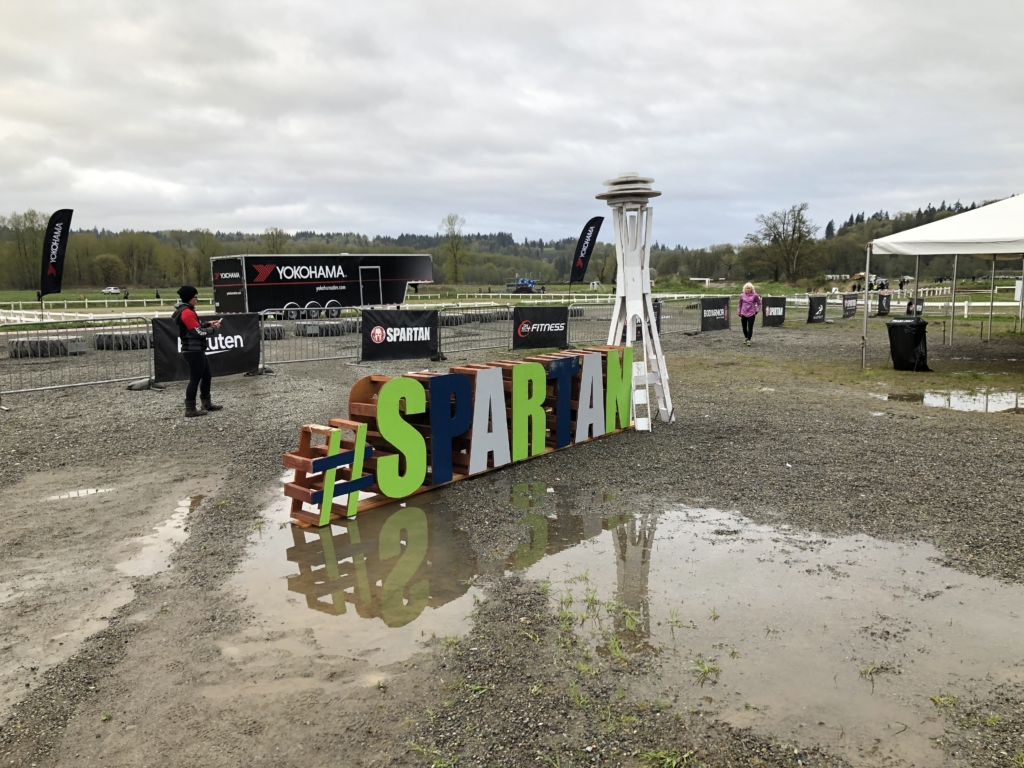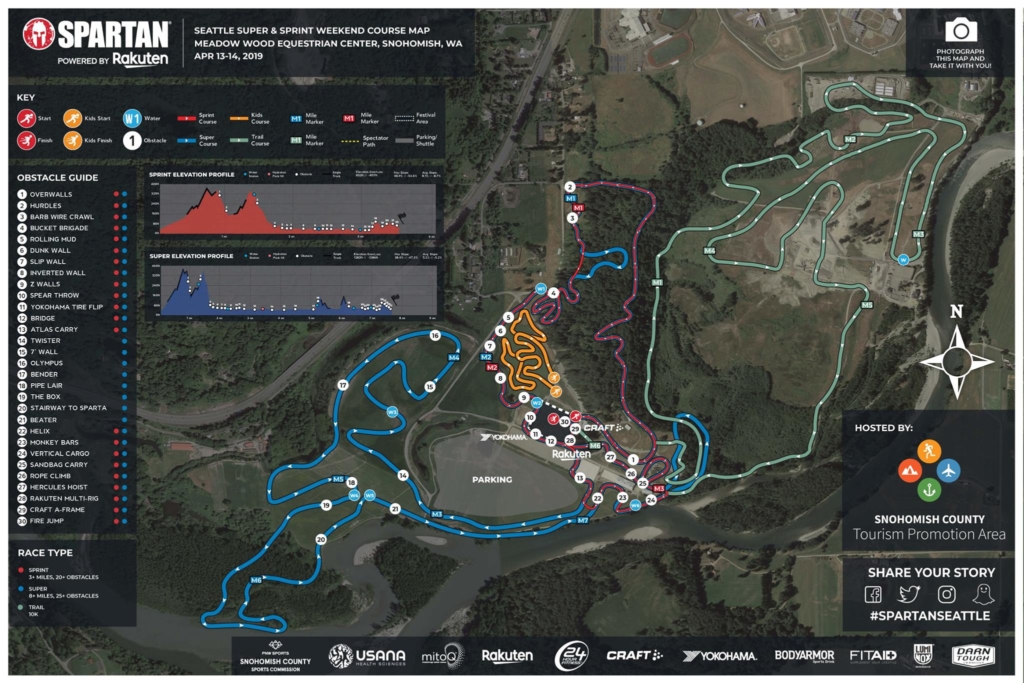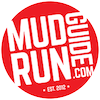Some of us PNW residents, and I’m sure most of those traveling to the Emerald City, held high hopes that the unseasonable dryness leading up to the third stop of the Spartan Race US Championship Series would continue and give us a dry course. Unfortunately, Seattle's weather is unforgiving.
In fact, I’m prepared to say, that as a Spartan Race Seattle participant who took part in both the open heat and Age Group at Seattle, that it’s now time for Spartan Race to change the dates of the Seattle Super. Yes, it’s extremely challenging for the sports’ toughest, most bad-ass athletes to battle in some of the country’s worst mud, but we know it’s not the elites who make Spartan its money. The absolutely dismal weather and course conditions are no longer exciting for those running for fun or the first time.
It was rumored that nearly 200 participants were treated for pre- or hypothermic symptoms during the Saturday Super. As a participant in the open heat, I actually stopped after three miles due to uncontrollable shaking. I’m completely positive that if I was running the event solo, in my regular age group, that I would have warmed up enough to make it through the low 40-degree temperatures, constant rain, sneaker-eating mud and hell-frozen river cross. Unfortunately, since it was just an open run, I had lost interest in the fun aspect of Spartan Race and deemed that it was not safe to continue on this path.
Weather should NOT be considered an obstacle. Yes, sometimes there are elements out of our own hands that will force a course to shut down or provide an unexpected, unseasonal snowstorm, etc. But everyone knows early April is prime rain time for the Seattle area. Yes, people enjoy mud on these “mud runs,” but at what point do the mud, low temperatures and seriously cold rain completely suck the motivation out of you? It was about mile 3 for me. (Please note, I was suffering from week-long cold symptoms, so my decision to call it an early day may not align with the masses.)
However, there are a lot of strange OCR enthusiasts who continue to flock to the upper left to drink Starbucks, watch fish being thrown across the room, stick ABC gum on a wall and, of course, put it all out there on the muddy, relatively flat course. If they build it, they will come, I guess…
The Course
Welcome back to the Meadow Wood Equestrian Center, where all of those dreams of penalty-free races quickly flow away like the distinctive scent of the rushing water in Snohomish, WA. While the MWEC is well-known for its extremely flat course, the mud and rain during this stop on the Spartan US Championship Series made it extremely interesting for elites who normally finish their races on the podium, burpee free.
The race began in the same 100 meters as last year’s Beast, where racers were immediately thrown at the steepest incline on course, but then took a turn around to a more trail-focused area, which was a mostly clean, obstacle-free trail. Looping around, participants would see the hurdles and a very chilly, rocky barbed wire crawl. Then, it was back into the woods for some technical downhill trail running until the dreaded, and quite trademarked bucket carry at this location. Trail Master Hammond has found one of the most challenging areas to tape in heavy carries at MWEC. In its distinctive “W” shape, participants carried their buckets through soggy, mushy and slippery terrain, before dropping their bucket off and running downhill through the absolutely freezing-cold rolling mud and dunk wall.
The Z-Walls were next, and boy, did they give plenty of people problems. I don’t think I’ve ever seen so many elite and age group athletes in the burpee zone for this standard obstacle. Even podium finishers Veejay Jones and Ryan Kent found themselves banging out 30 burpees here on Saturday. Luckily, they took time on Sunday to put together a better game plan for the Sprint!
But, the Z-Wall was one of the many standard “easier” obstacles that held up athletes of all levels during this Tahoe World Championship Qualifier. Monkey Bars, Multirig, Twister, Bender, Rope Climb, Beater, Helix – everything had a full burpee zone due to the non-stop rain and caked mud. The Atlas carry stone even found itself in a deep state of slippery, as racers dropped their stone in the muddy soup that was the MWEC. Additionally, Hercules Hoist was difficult to grasp due to the thick mud on ropes, which accumulated as earlier heats pulled the bags up. Hey, at least there was a fire jump, right?
One of the most challenging aspects of the course was the dreaded river crossing. If you were able to avoid a frigid feeling on the course up to this point, there was one last-ditch effort to break you down. The Seattle Super and Beast courses always feature the Snohomish River in some form, and this year’s crossing was so cold, it was eventually closed for the open heats. Really looking forward to that cool river water for the Beast this fall, though!
Results
It was a major upset weekend in terms of podium shakeups. Veejay Jones and Nicole Mericle were finally defeated as they continued to knock out first-place finish after first-place finish in 2019. Ryan Atkins took gold, with Jones second and Ryan Kent third, for the men. Lindsay Webster earned the gold for the women, with Mericle on silver, and Rea Kolbl on the bronze.
It’s important to note that Robert Killian and Rebecca Hammond were unable to attend this leg of the US Championship Series, and Ryan Woods pulled out of the competition due to injury, in effect, taking him out of the running for the series.
Final Thoughts
As I stated earlier in the recap, this race has lost its luster. While the location, parking and course are phenomenal (just look at any of the glowing reviews of the MWEC Beast, which takes place in the fall), it is time to knock back the annual spring super a few weeks to try an avoid the terrible rain. Yes, it rains in the PNW, I get it, but we don’t need to celebrate that. It’s also really beautiful in late spring and summer. Have you read my review of the Portland Sprint?
There are so many wonderful areas that would be able to host an event such as Spartan Race and I’m sure those traveling from out-of-state would love to explore Washington or Oregon on a grander scale. When it’s all said and done, I don’t think risking the safety of the open competitors is worth this annual trip. Hey, for all I know, it could be 50 degrees and sunny next year. Let’s hope I can eat my own words in 2020. For now, I’ll make my decision to take the short drive up to Seattle, the week of just to see if the weather will hold.
Rating: 3/5
Have you done an Spartan Race?
Leave your own Spartan Race review and feedback...
 This author is part of the Mud Run Crew and received a free race entry in return for an independent review. All opinions are those of the author and were not influenced by the race sponsor or Mud Run Guide.
This author is part of the Mud Run Crew and received a free race entry in return for an independent review. All opinions are those of the author and were not influenced by the race sponsor or Mud Run Guide.



Yes! Appreciate this post! I was given a bit of grief when I asked if they’d consider moving the race to less rainy months, same as you are getting.
I decided that I would be completely miserable or risk injury running the course with the bad rain. After hearing stories and watching the national race, I’m glad I didn’t do it!
I would have agree this has been terrible 2 years in a row but I keep thinking next year will be better. So I will be back.
Completely agree. It was brutal.
I’ll back up there for the Beast in Sept though.
I was not able to make the race due to an injury, and from what I have heard, I’m glad I didn’t go as the spectators that I bring with me would have been absolutely miserable!
Ted Kielley has the BEST IDEA EVER, which is to switch the dates and locations for the Seattle race with the Boise race! Boise would be great in April and Seattle would be GREAT in June! It’s a no brainer, win-win!
Option #2 is to move the race inland to Spokane Washington. There are a multitude of locations that could host this race and it would draw all the same people PLUS even more people from Montana and Idaho!